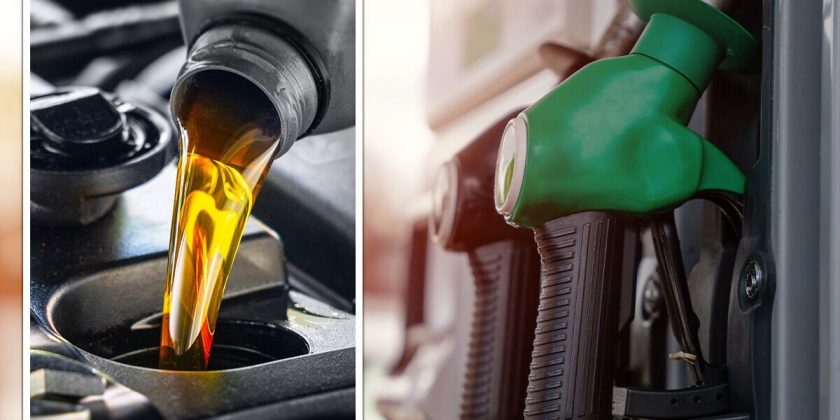Woolwich resident says petrol prices are 'astronomical'
We use your sign-up to provide content in ways you’ve consented to and to improve our understanding of you. This may include adverts from us and 3rd parties based on our understanding. You can unsubscribe at any time. More info
Motorists across the UK have been urged to check their engine oil as a simple mistake could lead to increased fuel consumption. And, with the cost of living crisis not showing any signs of slowing down, drivers will still look to save money anywhere they can.
Motoring experts have therefore urged drivers to check their engine oil in a bid to reduce their car’s fuel consumption.
A spokesperson for Insurance Revolution warned drivers about the importance of using engine oil to keep their cars up to standard.
They said: “Car owners are often not mindful about the engine oil specifications on the vehicle handbook.
“But you should know that when the handbook has mentioned a certain kind of engine oil for your car – it has done it for a reason.
“Not all engine oils are compatible for every kind of engine. Some engines need specific lubricants to make the most of their efficiency.
“If you don’t give them that, they cannot perform at their best.
“As a result they would ask for more volume of fuel, thereby staggering your driving costs.
“So, be smart enough to check out for the engine oil specifications in your vehicle handbook.”
DON’T MISS
Drivers warned as E10 petrol could lead to ‘performance issues’ [WARNING]
Drivers warned of huge fuel changes with further rollout of E10 petrol [INSIGHT]
Petrol and diesel drivers warned of new Clean Air Zone this month [REVEAL]
Experts at GSF Car Parts have also urged motorists to be aware of their oil and water levels, especially if they plan on embarking on long journeys.
Aside from keeping the engine lubricated and running smoothly, the engine oil can also have an important bearing on a driver’s fuel efficiency and the vehicle’s overall performance.
Engine oil can improve the fuel economy of a vehicle as it has a lower viscosity.
Moving thicker fluid through the engine uses more energy due to friction in key places like the oil pump and piston.
 Book here
Book here
Book your MOT with the UK’s #1 MOT tester – just click the link to book online.
 View Deal
View Deal
GSF Car Parts states: “When buying engine oil, look out for a few important numbers that indicate its viscosity.
“Taking 05W-20 oil as an example, the number before the ‘W’ stands for ‘winter’ and refers to the cold viscosity performance, and the one after it stands for the oil’s viscosity after the engine has warmed up.
“In the 1990s, 20W-50 and 10W-30 were the most commonly used oils, but today these have been superseded by 05W-20 and even 0W-20 oils in newer engines.”
With standards improving for the fuel efficiency of vehicles, drivers are set to benefit from having to visit the petrol station less often.
Automotive manufacturers are also under constant pressure from consumers to improve the fuel economy of their vehicles.
In 2012, the US Environmental Protection Agency set a goal that the average new vehicle would get 54.5 mpg (23.2 km/L) by 2025.
Despite fuel prices having fallen slightly in recent weeks they still remain fairly high.
According to the latest RAC Fuel Watch, motorists will have to pay 169.58p per litre of unleaded and 183.74p per litre of diesel on average.
Source: Read Full Article



